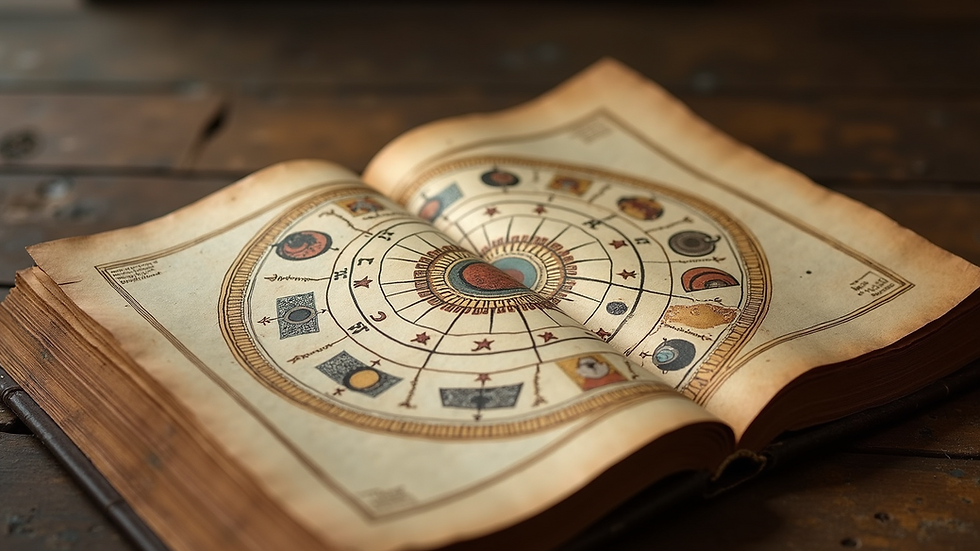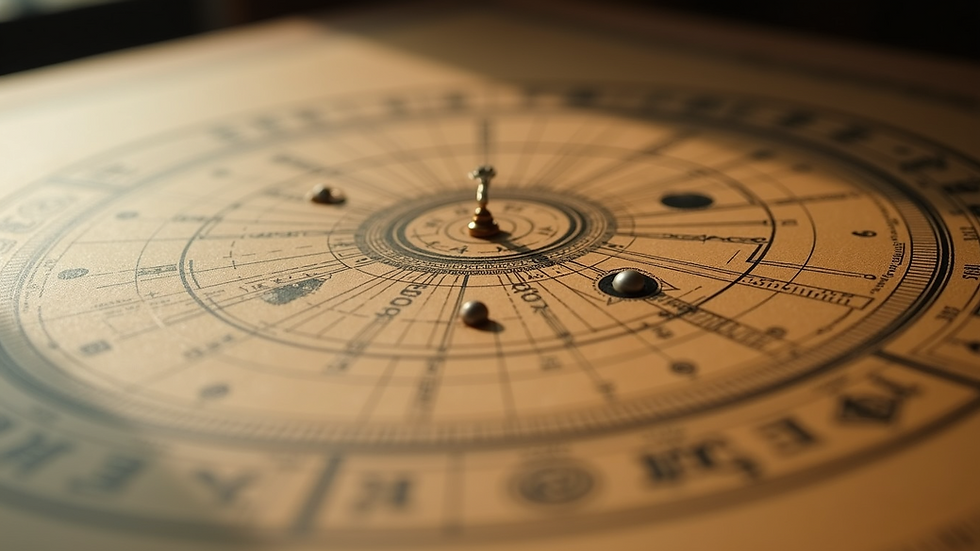Discover the Essence of Vedic Astrology
- Nov 4, 2025
- 4 min read
Vedic astrology is an ancient Indian science that has guided millions in understanding their life's path, personality, and destiny. Rooted in the Vedas, the oldest sacred texts of India, this system offers profound insights into the cosmic influences shaping our lives. Unlike Western astrology, which is primarily sun-sign based, Vedic astrology uses the moon's position and a sidereal zodiac, making it a unique and precise tool for self-discovery and prediction.
Understanding this ancient art can help you make informed decisions, improve relationships, and align with your true purpose. This article will take you through the core concepts, the significance of planets, and the twelve houses that form the foundation of this mystical science.
Introduction to the Core Concepts of Vedic Astrology
At its heart, Vedic astrology is about the connection between the cosmos and human life. It is based on the belief that the positions of planets and stars at the time of your birth influence your personality, behavior, and future events.
The key components include:
Planets (Grahas): Nine celestial bodies including the Sun, Moon, Mars, Mercury, Jupiter, Venus, Saturn, Rahu, and Ketu.
Zodiac Signs (Rashis): Twelve signs that represent different personality traits and life themes.
Houses (Bhavas): Twelve divisions of the sky, each governing specific areas of life.
Nakshatras: 27 lunar mansions or constellations that add depth to the interpretation.
For example, if Mars is strong in your chart, you may have a courageous and energetic personality. Conversely, a weak Saturn might indicate challenges in discipline or career.
By analyzing these elements, astrologers can provide guidance on career choices, marriage compatibility, health, and spiritual growth.

The Role of Planets and Their Influence
Planets in Vedic astrology are not just physical bodies but powerful energies that affect different aspects of life. Each planet has a unique influence:
Sun: Represents the soul, authority, and vitality.
Moon: Governs emotions, mind, and intuition.
Mars: Symbolizes energy, courage, and aggression.
Mercury: Associated with communication, intellect, and commerce.
Jupiter: The planet of wisdom, growth, and spirituality.
Venus: Governs love, beauty, and creativity.
Saturn: Represents discipline, responsibility, and limitations.
Rahu and Ketu: Shadow planets that influence karmic lessons and transformation.
For instance, a strong Jupiter in your chart can indicate success in education and spiritual pursuits, while a challenging Saturn might require patience and hard work to overcome obstacles.
Astrologers study the placement, strength, and relationships between these planets to predict life events and suggest remedies like gemstones, mantras, or rituals to balance planetary energies.

What are the 12 Houses in Vedic Astrology?
The twelve houses in Vedic astrology represent different life areas, and their interpretation is crucial for a comprehensive reading. Each house corresponds to specific themes:
First House (Ascendant): Self, personality, physical appearance.
Second House: Wealth, family, speech.
Third House: Siblings, courage, communication.
Fourth House: Home, mother, comforts.
Fifth House: Creativity, children, intelligence.
Sixth House: Health, enemies, service.
Seventh House: Marriage, partnerships, business.
Eighth House: Transformation, inheritance, secrets.
Ninth House: Luck, religion, higher education.
10. Tenth House: Career, reputation, authority.
11. Eleventh House: Gains, friendships, aspirations.
12. Twelfth House: Losses, expenses, spirituality.
For example, if your tenth house is strong, you may have a successful career and public recognition. A weak sixth house might indicate health issues or workplace challenges.
Understanding these houses helps in pinpointing where planetary energies manifest in your life, allowing for targeted advice and remedies.

Practical Applications of Vedic Astrology in Daily Life
Vedic astrology is not just theoretical; it offers practical tools to improve your life. Here are some ways you can apply its wisdom:
Career Guidance: Identify your strengths and suitable professions based on your birth chart.
Relationship Compatibility: Assess compatibility with partners to foster harmonious relationships.
Health Awareness: Predict potential health issues and take preventive measures.
Financial Planning: Understand favorable periods for investments and expenditures.
Spiritual Growth: Discover your karmic path and spiritual practices that resonate with you.
For example, if your chart shows a strong Venus, pursuing creative fields like art or music might bring fulfillment. If Saturn is challenging, practicing discipline and patience can help overcome obstacles.
Consulting a knowledgeable astrologer or using reliable online resources can provide personalized insights and remedies tailored to your unique chart.
Embracing the Wisdom of Vedic Astrology
Exploring Vedic astrology opens a gateway to understanding yourself and the universe on a deeper level. It encourages self-awareness, acceptance, and proactive living. By aligning with cosmic rhythms, you can navigate life's challenges with confidence and clarity.
Whether you seek answers about your career, relationships, or spiritual journey, this ancient science offers valuable guidance. To delve deeper, consider exploring detailed birth chart analyses and personalized consultations.
For those interested in learning more or seeking expert advice, visiting a trusted platform like vedic astrology can be a great starting point.
Unlock the secrets of the stars and let the timeless wisdom of Vedic astrology illuminate your path.





Comments